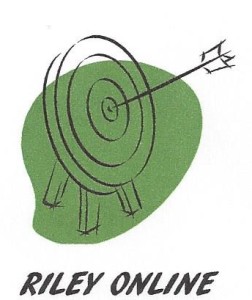 Many folks older than myself are recalling this week where they were Nov. 22, 1963, when they learned President Kennedy had been shot. I remember the day well, although I don’t remember hearing the news from Dallas. What I remember is that my family moved to a new town two hours away. We went to school that morning and our mother picked us up before the end of the school day to take us to the unknown Northland. I was in first grade. Kennedy’s assassination is the first historic event in my memory.
Many folks older than myself are recalling this week where they were Nov. 22, 1963, when they learned President Kennedy had been shot. I remember the day well, although I don’t remember hearing the news from Dallas. What I remember is that my family moved to a new town two hours away. We went to school that morning and our mother picked us up before the end of the school day to take us to the unknown Northland. I was in first grade. Kennedy’s assassination is the first historic event in my memory.
It was probably my mother who told me of the shooting. I don’t remember. I remember where we ate supper that night, that the waitress gave us a bag of cookies to take “home,” that it stormed and the electricity went out in our strange new house while all our belongings were packed in stacks of boxes. My father broke his own rule and brought the car flashlights into the house.
I remember watching the funeral cortege on television. I was sad for Caroline and little John John. Their daddy was dead. And that was my 6-year-old understanding.
The intriguing thing about history is that although facts and events don’t change, our understanding of them does. The event holds still; we move. We learn more, we gain experience and wisdom, and what we draw from a past event changes.
Kennedy’s assassination stepped out of the pages of my parents’ coffee table book on the subject and into a different understanding for me not with attempts on the lives of Gerald Ford and Ronald Reagan, but with the election of Barack Obama. A young president with young children, a beautiful wife, and a gift for soaring rhetoric. I had heard Michelle Obama talk at Prairie Blue in Jefferson. I had shaken Barack Obama’s hand after a speech at Perry High School. He captured my imagination. He was the first presidential candidate I was enthusiastic about, and watching the celebration in Lincoln Park on Election Night, I cried. There was finally a president I thought of as my president.
And then a nagging anxiety started. We live in a country where there is still hateful bigotry. I feared someone would shoot Barack Obama as a way to prove our country couldn’t have a black president. And that’s when I began to realize how crushed some people must have felt when Kennedy was shot.
As I read Condeleezza Rice’s memoirs this past summer I came to see the black perspective on Kennedy’s assassination. On Sept. 14, 1963, four young girls were killed in a firebombing of a black church in Rice’s neighborhood in Birmingham. Rice counted two of them as friends. The black community was terrorized. And then, two months later, just a week after Rice turned 9, the president the blacks had been counting on to champion civil rights was killed and a man from Texas became president. “The President’s dead, and there’s a southerner in the White House. What’s going to be come of us now”? Rice remembers her teacher saying upon hearing the news.
Rice writes of the same memories most people are recounting this week, of the dignity of Jacqueline Kennedy and the funeral cortege. “But for black citizens of Birmingham, John Kennedy’s assassination was personally threatening. I doubt if many children outside of the South would have described their reaction to his death as fear.” (“Extraordinary, Ordinary People,” Three Rivers Press.)
This past week, with all the attention to the 50th anniversary of the assassination, and with changes in my life that give me more solitary time than I’ve had in years , I wondered how my parents, my mother in particular, dealt with the news from Dallas. We’re social people who incorporate new or startling or frightening information into our thinking by talking about it. I still recall a conversation with a passing acquaintance in the checkout line at Fareway on Sept. 11, 2001. My parents were strangers in a new town. They had no one except each other to talk with. Maybe my mother made a long distance call to her mother that night 50 years ago, but I suspect not. I don’t know if the telephone was even connected in our new house yet. My father started his new job on Tuesday, after the National Day of Mourning.
We children started at our new school. But my mother had come to the new town without a job. Who did she talk to, to say the things that needed to be said aloud to make them real, or not real?
I’ve learned that the assassination of JFK was more than two children sad because their daddy was gone. My younger daughters will remember being afraid that a plane would crash into the Mahanay Bell Tower on Sept. 11, 2001, but they’ll someday understand how our lives changed that day.
Events in history don’t change. We do.
